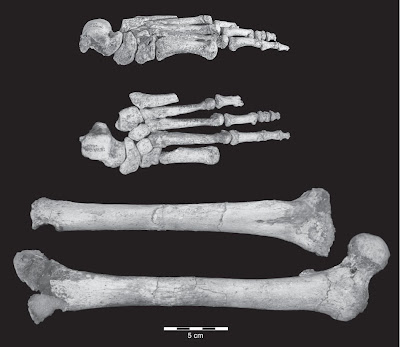 Ecological Niche Modeling And Finding Sasquatch's Range Distribution
Ecological Niche Modeling And Finding Sasquatch's Range DistributionEcological Niche Modeling is a great tool for conservation biology, phylogeography and evolutionary...
 Vaccine Wars: The Phantom Menace
Vaccine Wars: The Phantom MenaceIt's been 9 months since I read Autism's False Prophets and participated in a discussion over at...
 The Origins Of The Reductionist Program
The Origins Of The Reductionist ProgramThe Origins of the Reductionist Program"How can the events in space and time which take place within...
 Homo Floresiensis: Our Clown-Footed Cousins
Homo Floresiensis: Our Clown-Footed CousinsI was fascinated by the discovery of the dwarfed hominin Homo floresiensis back in 2004 when it...
- « first
- ‹ previous
- 1
- 2
- 3









